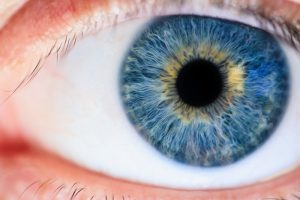 Macular Degeneration is the leading cause of vision loss in adults over the age of 50. It is considered an incurable eye disease. It can affect your ability to read, drive, recognize faces, and see fine details whether up close or far away.
Macular Degeneration is the leading cause of vision loss in adults over the age of 50. It is considered an incurable eye disease. It can affect your ability to read, drive, recognize faces, and see fine details whether up close or far away.
What is Macular Degeneration?
Macular Degeneration is caused by the deterioration of the macula, a part of the retina that helps to focus central vision in the eye. As mentioned above, it is an eye disease that leads to the loss of central vision.
There are two types of basic Macular Degeneration:
- Dry Macular Degeneration– This form is quite common and accounts for about 80% of those who suffer from Macular Degeneration. This type often occurs as the macula thins over time as you age, causing a slow loss of central vision.
- Wet Macular Degeneration– This form is less common but more severe as vision loss occurs rapidly due to the development of abnormal blood vessels within the retina.
Symptoms
Most patients do not experience vision loss early on as it occurs slowly and is painless. For this reason, it is extremely important to have annual comprehensive exams as your optometrist may be able to detect signs early on. Some symptoms of macular degeneration include:
- A gradual loss of ability to see clearly
- The shape of objects appear distorted
- Straight lines look wavy or crooked
- Loss of color vision
- Dark or empty areas of vision
It is important to note that vision loss due to Macular Degeneration is permanent and cannot be reversed.
Treatment
There is no current treatment for Dry Macular Degeneration. However, many people claim to benefit from a combination of lifestyle changes such as diet, exercise, and consuming multivitamins to slow vision loss.
Wet Macular Degeneration can be treated if detected early. The most common form of treatment is using anti-VEGF drugs that can reduce the number of blood vessels within your retina. Laser surgery can also be used to reduce blood vessels.
If you suspect you or a loved one may be suffering from Macular Degeneration, please schedule an appointment with your optometrist today. There is no cure, but there are things that can slow the progression of vision loss such as diet and exercise, strengthening your vision with supplements, and protecting your eyes from UV light. For more information, please contact Horizon Family Eye Care today.

